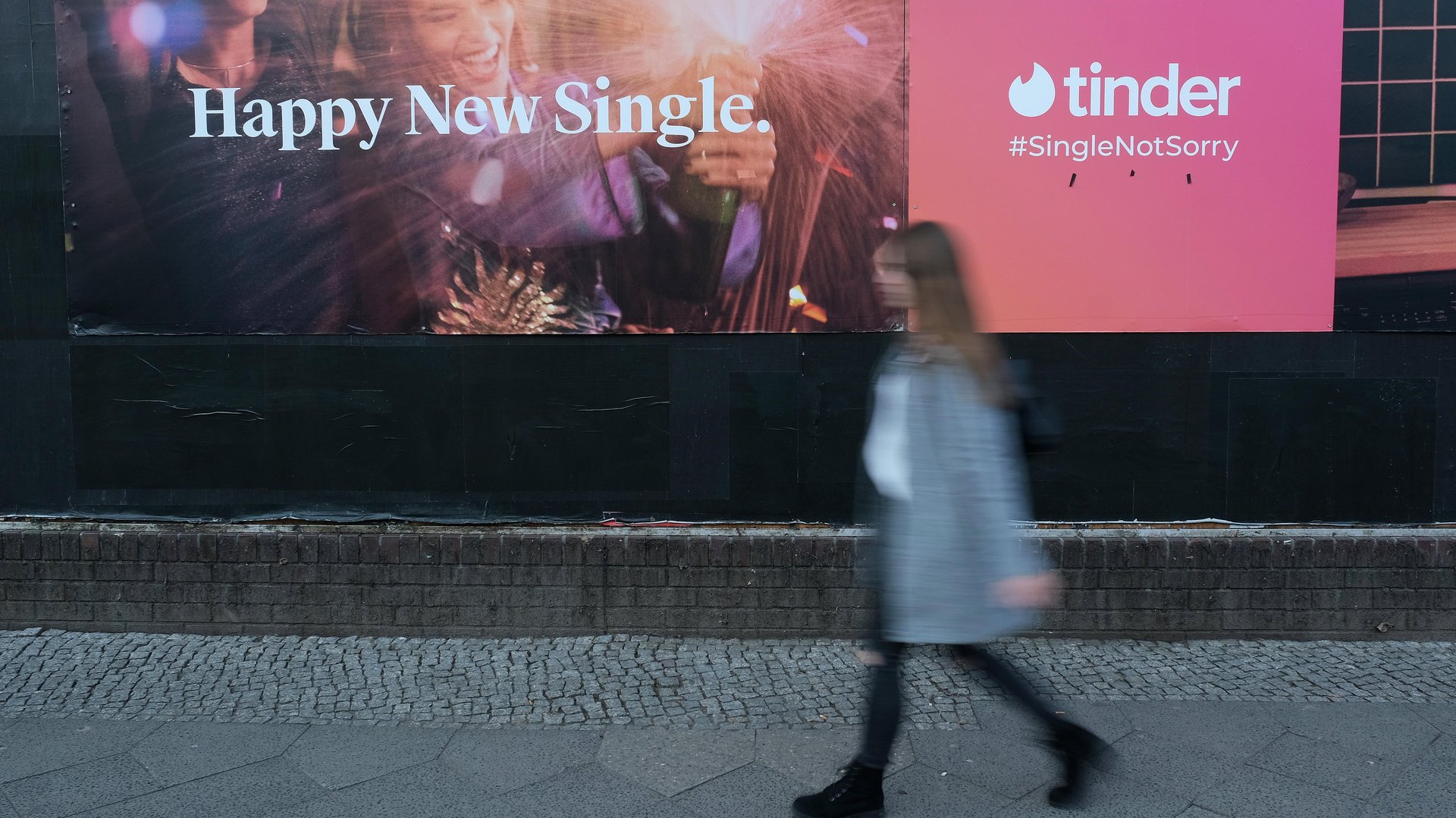Tinder ignored Russia’s red flags for more than a year before finally breaking up
Match Group is exiting the country citing a commitment to “protecting human rights”

It took a more than a year, but Match Group is finally ready to dump Russia.
Suggested Reading
The parent company behind several dating apps including Tinder, Hinge, and PlentyOfFish, announced its brands will withdraw from Russia by June 30, 2023. “We are committed to protecting human rights,” Match Group said in its 2023 annual impact report, released on May 1.
Related Content
The Texas-based conglomerate didn’t spell out what these human rights concerns were, but Russia’s invasion of Ukraine in February 2022 seems like an obvious contender.
Match joins hundreds of brands such as Coca-Cola, McDonald’s, Netflix and Spotify, in pulling out of Russia in the war’s aftermath.
Quotable: Tinder is “slow on moral action”
“What has changed in the last year that made it wake up now? Putin has been relentlessly attacking Ukraine since he invaded the country. Tinder is fast for dating action but slow on moral action. It should just switch it off tomorrow.”—Mark Dixon, founder of the Moral Rating Agency, a campaign group calling for Western firms to leave Russia
Why has Match Group pulled out of Russia now?
On March 17, the International Criminal Court (ICC) issued an arrest warrant against Russian president Vladimir Putin, accusing him of the war crime of illegally deporting hundreds of children from Ukraine. While Russia rejected the allegations and paid no heed to the indictment since it’s not an ICC member, it was a hit to Russia’s already faltering reputation on the global stage.
“It’s not a good look for a trusted brand to be continuing operations in a nation where the head of state has been indicted by the International Criminal Court,” Jeff Perkins, executive director of a Match Group shareholder, Friends Fiduciary, told Reuters.
In fact, it wasn’t a good look even before the court’s intervention. That’s likely why Tinder rival Bumble stopped operations in Russia and Belarus in March last year. Its shares soared 40% on the decision at the time.
Charted: Tinder was the most popular dating app in Russia in 2022
Company of interest: Mamba
The second-most popular dating app in Russia is Moscow-based Mamba, which stands to benefit from Tinder’s exit.
“Speaking about the inflow of registrations, we now have about 30,000 people signing up per day but I think that figure may reach 45,000-50,000 as Tinder pulls out,” Mamba CEO Andrey Bronetsky told Russian news agency TASS.
One more thing: Tinder served as an information tunnel between Ukraine and Russia
Dating apps like Tinder became unlikely hubs for information sharing after the invasion.
Ukrainians would set their location to Russia and reach out to Russian citizens to share first-hand accounts of their experiences to counter the Kremlin’s propaganda. Some would message people and engage in conversation. Others would add written details and photos of ruins and wreckages to their bios and profiles. The dating apps become a digital bridge of communication in the absence of Instagram, Facebook, and Twitter.
Some more sophisticated users could even triangulate data about the whereabouts of Russian soldiers via these apps.
Related stories
🧊 The companies boycotting Russia are demonstrating six key values
